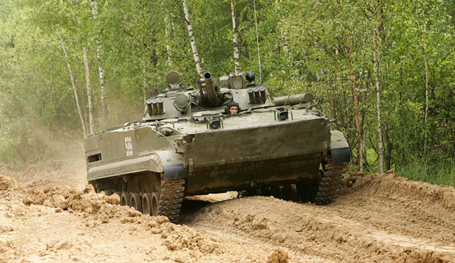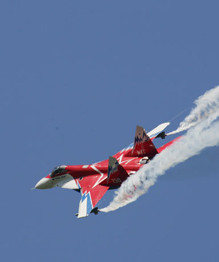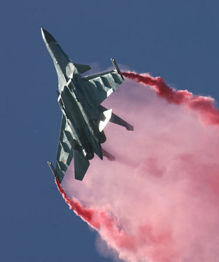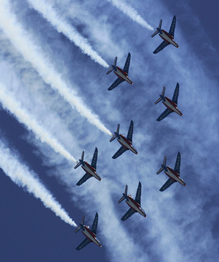Alina Kabaeva: The beauty and the sport
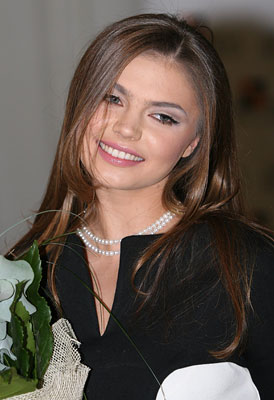
Alina Kabaeva (born May 12, 1983) is a rhythmic gymnast from Russia. Kabaeva is known for her extreme natural flexibility. She stands at 1.63m (5'4'') and weighs 48kg (106lbs). She is Russia's most successful rhythmic gymnast to date, and is also one of the most decorated gymnasts in the history of rhythmic gymnastics with 18 World Championship medals, 2 Olympic medals and 25 European Championship medals
All photos by Ali Magomedov, Pravda.ru
Alina Kabaeva (born May 12, 1983) is a rhythmic gymnast from Russia. Kabaeva is known for her extreme natural flexibility. She stands at 1.63m (5'4'') and weighs 48kg (106lbs). She is Russia's most successful rhythmic gymnast to date, and is also one of the most decorated gymnasts in the history of rhythmic gymnastics with 18 World Championship medals, 2 Olympic medals and 25 European Championship medals
All photos by Ali Magomedov, Pravda.ru
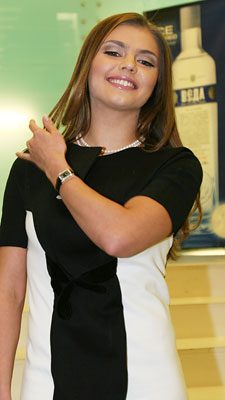
Kabaeva, the daughter of Tatar father and Russian mother, was born in Tashkent, Uzbek SSR, in the Soviet Union. She started rhythmic gymnastics there in 1987 at an age of 4. Her first coach was A. Malkina. Her father was a professional football (soccer) player and the family was constantly following him to different places in Uzbekistan, Kazakhstan and Russia. At first, many coaches did not like Alina because they considered her "too heavy" and "ugly" to be a rhythmic gymnast, none of them seemed to consider her a rhythmic gymnast of any particular talent. In her young teens she moved to Russia, where her mother took her to the Russian head coach Irina Viner, who liked her from the start
Kabaeva, the daughter of Tatar father and Russian mother, was born in Tashkent, Uzbek SSR, in the Soviet Union. She started rhythmic gymnastics there in 1987 at an age of 4. Her first coach was A. Malkina. Her father was a professional football (soccer) player and the family was constantly following him to different places in Uzbekistan, Kazakhstan and Russia. At first, many coaches did not like Alina because they considered her "too heavy" and "ugly" to be a rhythmic gymnast, none of them seemed to consider her a rhythmic gymnast of any particular talent. In her young teens she moved to Russia, where her mother took her to the Russian head coach Irina Viner, who liked her from the start
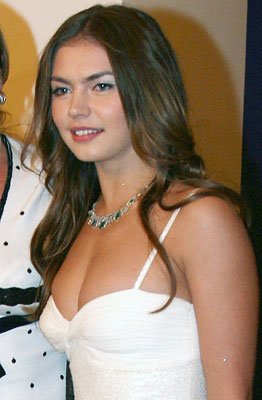
"I could not believe my eyes, when I first saw her. The girl has the rare combination of two qualities crucial in Rhythmic Gymnastics - flexibility and agility."
Irina Viner, coach
"I could not believe my eyes, when I first saw her. The girl has the rare combination of two qualities crucial in Rhythmic Gymnastics - flexibility and agility."
Irina Viner, coach
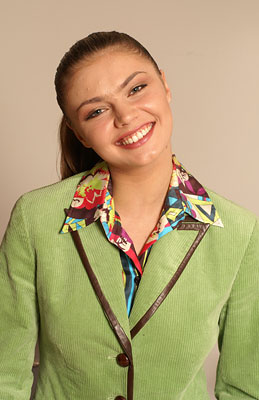
She stayed with Viner and from then on began claiming title after title. She made her international debut in 1996. In 1998 the 15 year old Kabaeva won the European Championships in Portugal, where her victory was considered by many to be completely "out of the blue". At the time she was the youngest member of the Russian squad, competing alongside internationally recognized teammates, like Amina Zaripova. In 1999 Kabaeva became European Champion for the second consecutive time and won the World title in Osaka, Japan. She went on to win a total of 5 all-around titles at the European Championships and added another World title in 2003 in Budapest, Hungary.
She stayed with Viner and from then on began claiming title after title. She made her international debut in 1996. In 1998 the 15 year old Kabaeva won the European Championships in Portugal, where her victory was considered by many to be completely "out of the blue". At the time she was the youngest member of the Russian squad, competing alongside internationally recognized teammates, like Amina Zaripova. In 1999 Kabaeva became European Champion for the second consecutive time and won the World title in Osaka, Japan. She went on to win a total of 5 all-around titles at the European Championships and added another World title in 2003 in Budapest, Hungary.
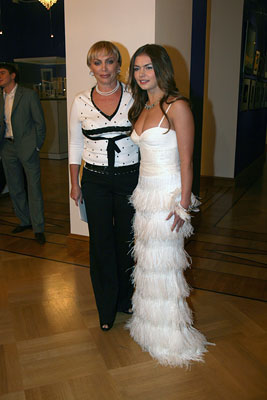
At the 2000 Sydney Olympics, Kabaeva was expected to claim gold in all-around, but, due to an error in an otherwise exceptional performance -- she dropped her hoop and ran to retrieve it outside the competition area - took home the bronze with the final score of 39.466 (Rope 9.925, Hoop 9.641, Ball 9.950, Ribbon 9.950). In 2001 at the Goodwill Games in Brisbane, Australia, she won the gold for the Ball, Clubs and Rope, and silver in the Individual All-Around and Hoop. However, Kabaeva and her teammate Irina Tchachina tested positive to a banned diuretic (furosemide) and were stripped of their medals.
At the 2000 Sydney Olympics, Kabaeva was expected to claim gold in all-around, but, due to an error in an otherwise exceptional performance -- she dropped her hoop and ran to retrieve it outside the competition area - took home the bronze with the final score of 39.466 (Rope 9.925, Hoop 9.641, Ball 9.950, Ribbon 9.950). In 2001 at the Goodwill Games in Brisbane, Australia, she won the gold for the Ball, Clubs and Rope, and silver in the Individual All-Around and Hoop. However, Kabaeva and her teammate Irina Tchachina tested positive to a banned diuretic (furosemide) and were stripped of their medals.
